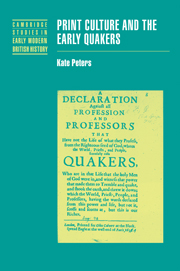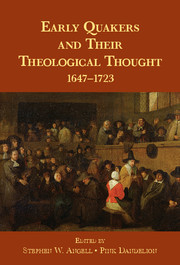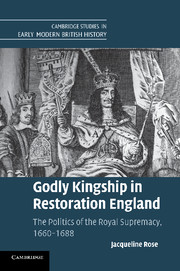Print Culture and the Early Quakers
The early Quaker movement was remarkable for its prolific use of the printing press. Carefully orchestrated by a handful of men and women who were the movement's leaders, printed tracts were an integral feature of the rapid spread of Quaker ideas in the 1650s. Drawing on very rich documentary evidence, this book examines how and why Quakers were able to make such effective use of print. As a crucial element in an extensive proselytising campaign, printed tracts enabled the emergence of the Quaker movement as a uniform, national phenomenon. The book explores the impressive organization underpinning Quaker pamphleteering and argues that the early movement should not be dismissed as a disillusioned spiritual remnant of the English Revolution, but was rather a purposeful campaign which sought, and achieved, effective dialogue with both the body politic and society at large.
- Based on unusually rich documentation which enables a detailed and unique case study of how people used and read books in early modern England
- Provides a new and different interpretation of the role of women in the early Quaker movement
- Modifies existing understanding of the early Quaker movement, arguing that the movement was a purposeful political campaign
Reviews & endorsements
"This is a very impressive and broad ranging discussion of the interplay of print, sectarian identity, and widening political participation."
- H-Albion, Ted Vallance, School of History, University of Liverpool
"There is simply nothing not to praise about Peters's work. Wide-ranging in its research, unobtrusive in dialogue with other historians, careful and thoughtful in its conclusions, it is an important contribution to our understanding of both a religious movement and a critical period in British history." - Thomas D. Hamm, Earlham College
"With her very readable work, Peters gives us a detailed and new understanding of why Quakers were seen as such a threat by their contemporaries and why they were the only radical sect not justs to survive the Interregnum, but to flourish well beyond. This book is recommended as a valuable addition to both the scholarship and the classroom." - Jane E. Calvert, St. Mary's College of Maryland
Product details
January 2009Paperback
9780521093125
292 pages
229 × 152 × 17 mm
0.43kg
15 b/w illus.
Available
Table of Contents
- Introduction
- 1. Writing and authority in the early Quaker movement
- 2. The production and readership of Quaker pamphlets
- 3. A national movement: pamphleteering in East Anglia
- 4. 'The Quakers Quaking': the printed identity of the movement
- 5. 'Women's speaking justified': women and pamphleteering
- 6. Pamphleteering and religious debate
- 7. Print and political participation
- 8. The James Nayler crisis, 1656
- Bibliography of secondary sources.










